



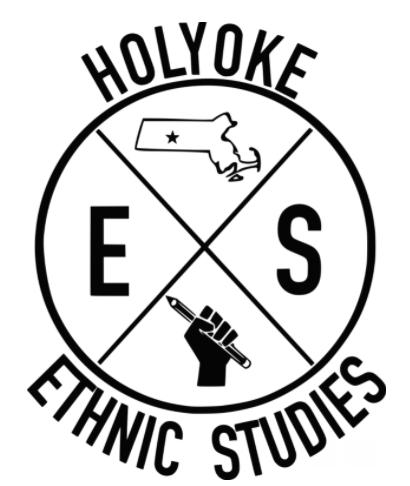
INTRODUCTION
Holyoke Public Schools (HPS) is fortunate to have a strong Ethnic Studies Program. However, we noticed that many students are still not educated in school about race, racism, white supremacy, or social change. We believe that knowledge is power and we want to make sure all students have access to their history and to understanding their power to create social change. So we set out this year to try and understand how to strengthen our ethnic studies program!
In 2017-2018, Pa’lante Peer Leaders chose Racism as their YPAR project (read more about the Racism Audit). One of the recommendations was to create an Ethnic Studies Requirement. Students were excited to build on that work and look into how to make this recommendation a reality.
METHODS
We decided to do some research to understand different perspectives in our community about ethnic studies, a graduation requirement, and other needs for the program. We used a mixed methods approach to gather our data. For this approach, we sent a survey out to students and teachers/staff. We are proud that 372 students and 68 staff participated in this survey. We also conducted three focus groups (School Leadership, Teachers, and Ethnic Studies Leadership) to get more qualitative data and perspectives on expanding Ethnic Studies in our district.
FINDINGS
We identified the following themes from the Focus Groups we conducted:
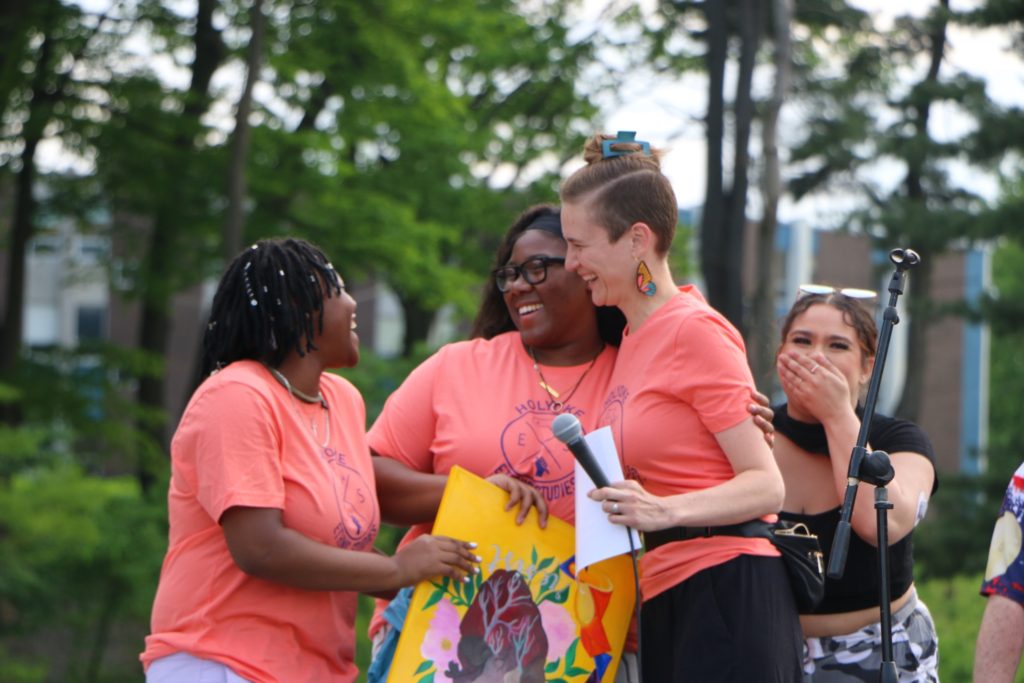
#1 Ethnic studies promotes a positive school culture
- Ethnic Studies has inspired others in the school to think more intentionally about representation, hiring, and curriculum.
- Students share knowledge from Ethnic Studies with friends and family, creating a ripple effect of learning.
- Ethnic Studies offers a safe place in the school for students to explore difficult topics related to racism and current events.
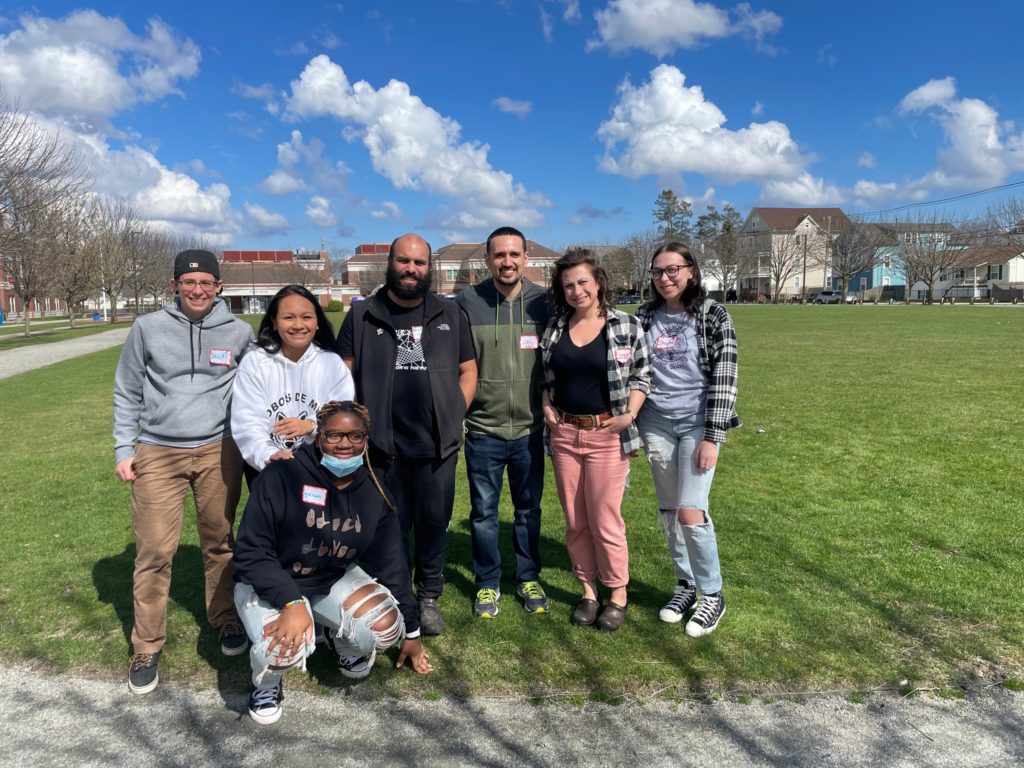
#2 Ethnic Studies Students Become Leaders in their Communities
- Ethnic studies students often become leaders and activists in their school
- Ethnic studies helps to strengthen students’ political viewpoints
- Ethnic studies uplifts students’ voices
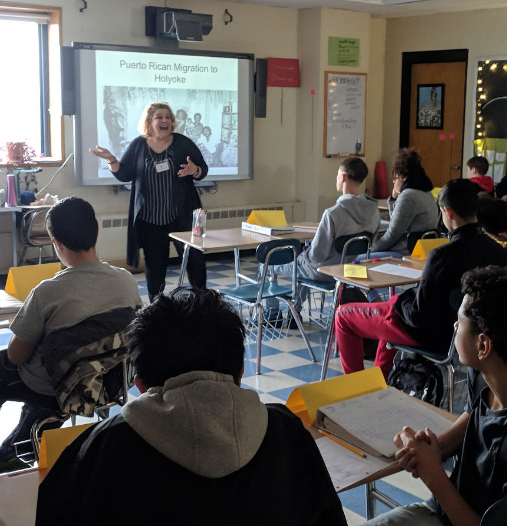
#3 Ethnic Studies Engages Disengaged Learners
- Ethnic Studies classes focus on relationship building and building a learning community
- Ethnic Studies creates opportunities for students to understand and develop their identities
- Ethnic Studies incorporates SEL into the curriculum
- Ethnic Studies utilizes relevant curriculum that connects to social issues directly affecting students’ lives and builds literacy around texts that speak to students
- Ethnic Studies builds core academic skills and critical thinking
#4 Some Students, Teachers, and School Leaders hold negative beliefs about Ethnic Studies, including:
- Ethnic Studies is in opposition to other departments
- Ethnic Studies creates trouble-makers
- Ethnic Studies contributes to unnecessary conflict between students of color and their white teachers
- Ethnic Studies causes dysregulation amongst some students
- Ethnic Studies goes against their religious or cultural beliefs
- Ethnic Studies creates gaps in students’ academic knowledge or skills
- Ethnic Studies is not inclusive, as it does not include European ethnicities (eg: Irish)
- Ethnic Studies is anti-white
Student, Teacher & Staff Surveys
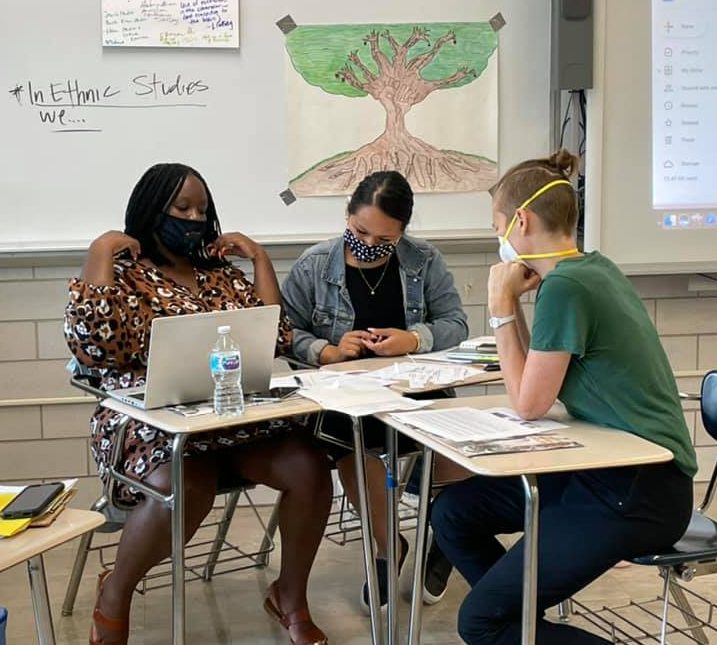
Student Survey Demographics
A total of 372 students responded to the survey, and included an even spread across grade levels. Of the student respondents, 71% identified as Latinx, 33% identified as white, 11% identified as Black, 3% identified as Indigenous, and 2% identified as Asian American/Pacific Islander.
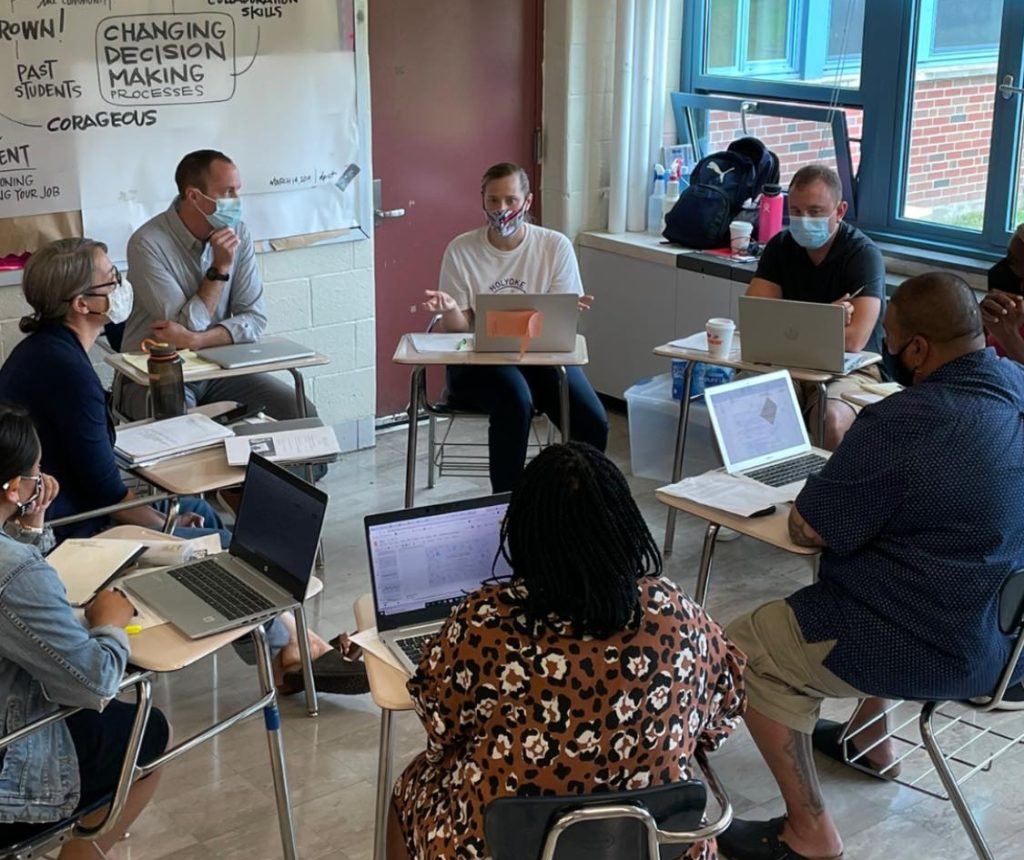
Teachers/Staff Survey Demographics
A total of 68 teachers and staff members responded to the survey. Of the respondents, 77% were teachers, 11% were counselors, 3% were administrators, and 9% were other school staff. The racial makeup of the respondents was proportional to the racial makeup of all staff. 73% identified as white, 25% identified as Latinx, 3% identified as Black, 3% identified as Native, and 2% identified as Asian American/Pacific Islander. Survey respondents represented all departments in the school, including Math, History, English, Science, English Language Learning, Special Education, Career and Technical Education, Art, Music, and physical education.
Survey Findings
From the surveys, we learned that 60% Of students who chose not to take Ethnic Studies did so because they were not offered it as an option OR did not know what it was. This is a huge access issue we want to address because it means a lot of students are missing this valuable opportunity.
The survey showed that a majority of students understand some of the key elements of Ethnic Studies. For example, 84% of students believe that Ethnic Studies classes study the impact of racism on communities of color, and 79% of students believe that Ethnic Studies talks about social issues in students’ lives.
However, 10% of students believe that ES promotes discrimination against white people and ignores the contributions of white people, which is NOT true.
Another 58% believe that Ethnic Studies does not prepare students with academic skills, which is also NOT true. Ethnic Studies is a unique academic field that is quite rigorous and has been documented to improve literacy and other academic skills.
The survey also helped us understand what percentage of our community supports an ethnic studies requirement. In both surveys, the majority of students and adults in our building supported an ethnic studies requirement. See the graphs below:
Student Survey Respondents:
Do you support an Ethnic Studies Graduation Requirement?
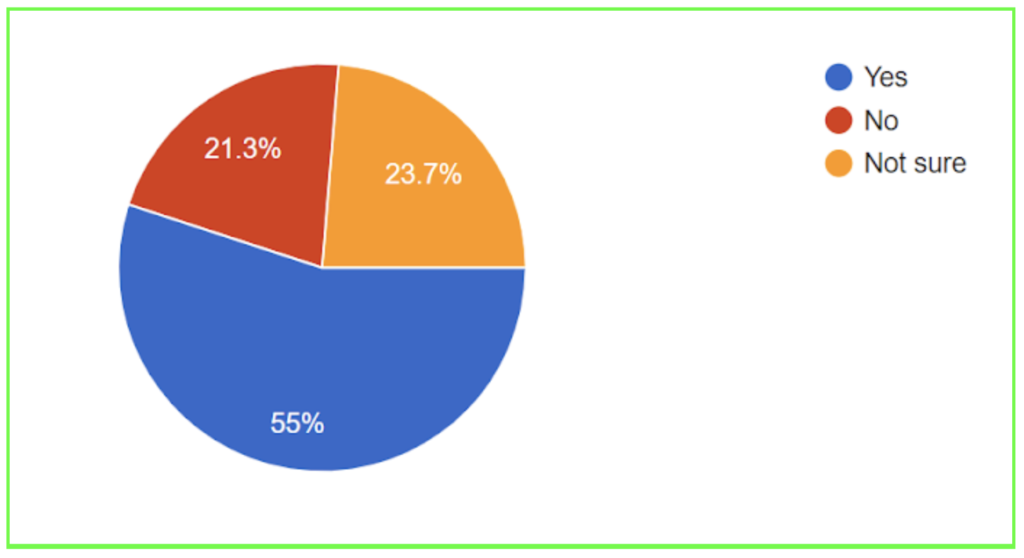
Teachers/Staff Survey Respondents:
Do you support an Ethnic Studies Graduation Requirement?
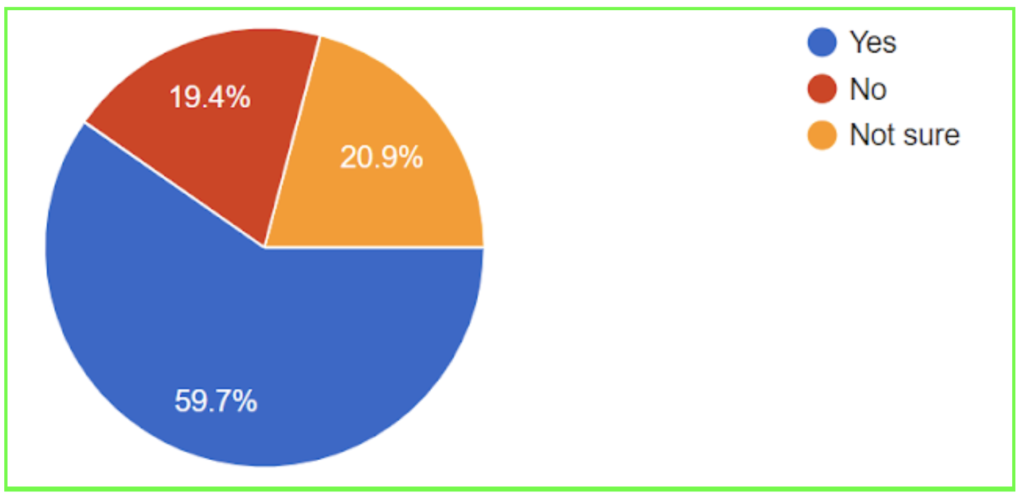
RECOMMENDATIONS
Based on data from the surveys and focus groups, students put their heads together to devise a set of recommendations to expand and strengthen Ethnic Studies in Holyoke, with the intention of delivering these recommendations to administrators through a virtual presentation where they would share their data and their proposed solutions.
- School leaders have a circle with Ethnic Studies leadership to build trust and understanding.
- School leaders attend a workshop with Ethnic Studies to learn more about why these classes are unique
- Ethnic Studies is guaranteed a sustained 15k budget from year to year
- Principals and Counselors create a process to ensure that all students understand their choices for Ethnic Studies Classes
- Ethnic Studies creates a rubric for hiring qualified Ethnic Studies Teachers
- Ethnic Studies Leadership should always be at the decision-making table for hiring Ethnic Studies Staff
- One new teacher should be hired to teach Ethnic Studies Elective Courses
- We recommend that Leadership plan to implement an Ethnic Studies Graduation Requirement by 2023
As we were preparing to deliver our recommendations to school and district leaders in May 2021, we heard that the district was making huge changes to the Ethnic Studies program. Some of which, we learned, are actually aligned with our recommendations. For example, while school leadership did not agree with our recommendation to move toward an Ethnic Studies graduation requirement at the high school level, the district did announce that they are planning to have all 7th and 8th graders take Ethnic Studies starting in 2021-22. They also have sustained the 15k budget yearly for Ethnic Studies.
While we are celebrating some of these successes, it’s important to note that before the end of the year in 2021, District Leadership announced a plan to 1) eliminate the district-funded position that functioned as the Ethnic Studies Director, and 2) restructure the program into a “Department”. These decisions were made with no teacher, staff, student or community input. They claim they are taking funds from the Director position and creating a new Ethnic Studies teaching position, which will serve as the Department Head for 7-12 grades. While we are excited for a new teacher position, a department head with a full teaching load will not have the time or capacity to maintain many aspects of Ethnic Studies that make it what it is. The decision to cut the Director means less access for students to community engagement, university partners, field experiences, teacher coaching and so much more. We are also concerned that this was a very top-down decision with no input from the people on the ground who have made the program what it is today.
MOVING FORWARD
To learn more about the fight to preserve & sustain Ethnic Studies in Holyoke



